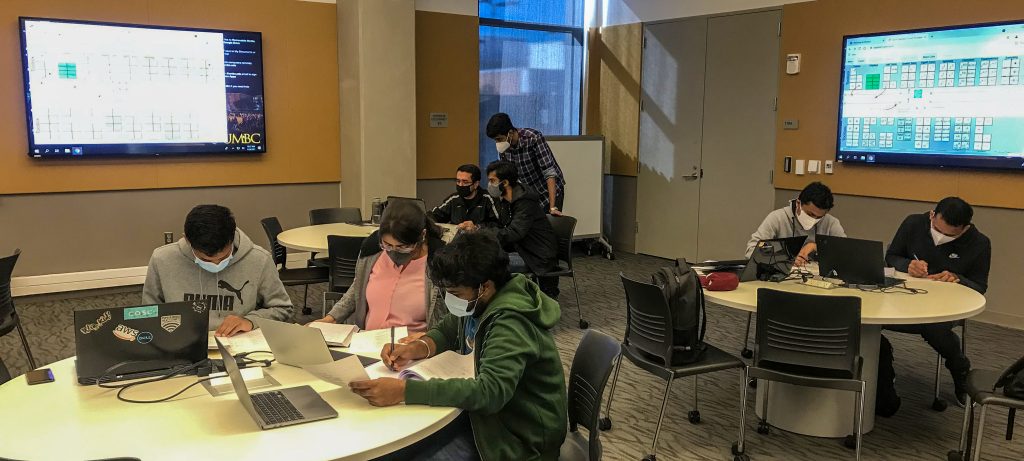
UMBC Computer Science Students Learn About Quantum Algorithms
UMBC computer science graduate students now gain an introduction to quantum algorithms in the required core course CMSC-641 Design and Analysis of Algorithms. Professor Alan T. Sherman and his colleagues–including Professors Sam Lomonaco (computer science) and Linda Oliva (education)—are piloting a two-week unit on quantum algorithms. With support from a Hrabowski Innovation Fund award, the team created six modules, each comprising a video, hands-on activities, and readings. Using the flipped classroom, students watch the videos before coming to class prepared to engage actively in programming the QUIRK quantum circuit simulator and the IBM Q quantum computer using the Qiskit software development kit.
Quantum algorithms running on quantum computers offer the potential to solve complex problems with dramatically reduced execution time and energy consumption. For example, Shor’s quantum algorithm for factoring integers runs in polynomial time, faster than any known algorithm for classical computers. Shor’s algorithm offers the future potential to break the widely-used RSA cryptosystem. Whereas classical computers use discrete 1’s and 0’s to perform calculations, quantum computers use Q-bits, which involve complex numbers and can simultaneously be 0 or 1.
Based on quantum physics, quantum computers operate in a strange universe that includes the curious and potentially useful effects of superposition and entanglement. In pursuit of transformative potential advantages, government and private industry are investing significantly in quantum computer technologies. All computer science students need to know about these vital emerging technologies.
Whereas there exist full courses in quantum computation or quantum algorithms, Sherman’s innovation is to develop a two-week unit focused sharply on quantum algorithms targeted at computer science graduate students. The unit highlights three quantum algorithms: Deutsch-Jozsa, Simon, and Shor. To keep the unit manageable within 15 hours of work per week per student, the unit focuses sharply on background sufficient to understand the fundamentals of these three algorithms.
Additional members of the team include graduate students Marc Laczin and Siddharth Chandrasekaran, and Dr. Omar Shehab (IBM), a former Ph.D. student of Dr. Lomonaco.